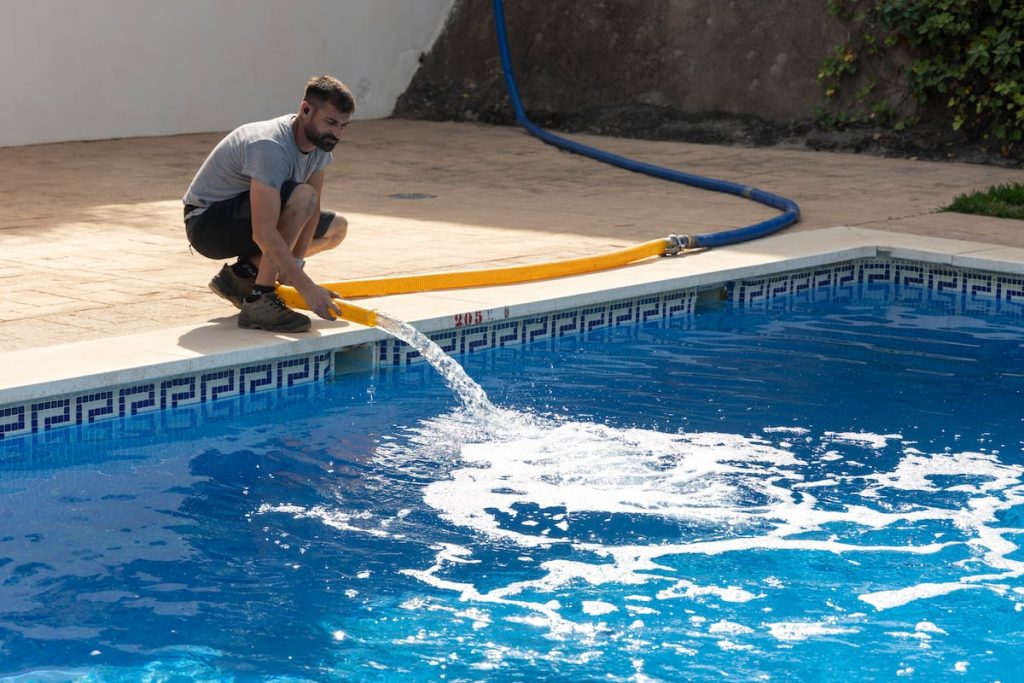The Junta de Andalucía has announced that all private swimming pools in the province of Málaga will be allowed to be filled this summer. This decision will impact the nearly 80,000 pools in the region, which is facing low reservoir levels at 27.9% capacity. This special authorization comes in recognition of Málaga’s importance in the tourism sector and its population increase during the summer season. The government plans to evaluate the situation in other regions of Andalucía in the coming weeks to determine if they can also lift the ban on filling pools. It is expected that all eight provinces in Andalucía will eventually be allowed to fill their pools this summer, with a maximum limit of 400 cubic meters of water per hectare per month for garden watering.
The ruling by the Junta de Andalucía to allow the filling of private swimming pools in Málaga comes after the controversial decision in March which initially only permitted hotel pools to be filled, while banning private and residential complex pools. This sparked criticism from local communities affected by the ban. However, with the increase in reservoir levels due to recent rainfall, the government has decided to delegate the final decision to municipalities, allowing them to determine if pools can be filled or not. This shift in policy aims to prevent potential conflicts between neighboring towns, as some towns allowing pool filling could attract more tourists than those enforcing more sustainable water use practices.
To coordinate decisions regarding water use, the Junta de Andalucía plans to hold meetings with drought committees in all regions of Andalucía in May. The objective is to assess the reservoir levels in each area and ensure that appropriate and sustainable decisions are made regarding water management. Although the recent rainfalls have helped improve reservoir levels, the government emphasizes the importance of continued water conservation efforts, such as maintaining the limit of 200 liters per person per day. The government, while acknowledging the economic benefits of tourism, underlines the necessity of balancing economic development with responsible water management, considering water as a scarce and essential resource.
The government of Andalucía is actively monitoring the situation of reservoirs, which currently hold 5,235 cubic hectometers of water at 43.75% of their total capacity. This represents a significant increase compared to the same period last year, with 1,911 more hectometers stored presently. Various hydrographic regions in Andalucía have different water storage levels, with the Guadalquivir basin at 47.3% capacity, the Cuencas Mediterráneas Andaluzas, which includes Málaga, at a third of its capacity, and the Guadalete-Barbate basin at 30.5% capacity. The government remains cautious about drought conditions and encourages responsible water use practices to ensure sustainable water management.
In conclusion, the recent decision to allow the filling of private pools in Málaga reflects the government’s intention to balance economic interests with environmental concerns. The Junta de Andalucía’s approach emphasizes the importance of sustainable water management practices, especially in regions heavily reliant on tourism like the Costa del Sol. By involving municipalities in decision-making processes regarding water use, the government aims to prevent potential disparities between neighboring towns and ensure a coherent approach to water conservation. Continued efforts to monitor reservoir levels and promote water conservation will be crucial in addressing the ongoing challenges posed by drought conditions in Andalucía.















